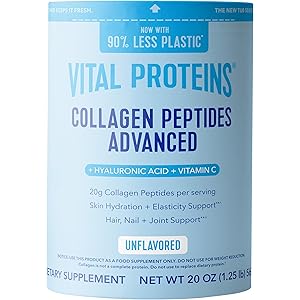Sports Research® Vitamin D3 + K2 w/ Coconut Oil - Vegan Vitamin D 5000iu & Mk7 Vitamin K 100mcg for Bone & Immune Support - Vegan Certified · Non-GMO · Soy Free - 60 Softgels
$23.95 (as of October 27, 2025 06:27 GMT +00:00 - More infoProduct prices and availability are accurate as of the date/time indicated and are subject to change. Any price and availability information displayed on [relevant Amazon Site(s), as applicable] at the time of purchase will apply to the purchase of this product.)Understanding Dairy-Free Diets
A dairy-free diet is one that excludes all forms of dairy products, including milk, cheese, yogurt, and butter. This dietary choice is often adopted for various reasons, including lactose intolerance, dairy allergies, veganism, or personal health preferences. By eliminating dairy, individuals may seek to improve their digestive health, reduce inflammation, or simply explore new culinary options that do not rely on animal products.
Health Benefits of a Dairy-Free Diet
Many people find that a dairy-free diet can lead to numerous health benefits. For those with lactose intolerance, avoiding dairy can alleviate symptoms such as bloating, gas, and diarrhea. Additionally, some studies suggest that reducing dairy intake may lower the risk of certain health issues, including acne, cardiovascular diseases, and even some forms of cancer. Furthermore, a dairy-free diet encourages the consumption of a wider variety of foods, which can enhance overall nutrition.
Common Dairy Alternatives
In a dairy-free diet, individuals often turn to various alternatives to replace traditional dairy products. Popular substitutes include almond milk, coconut yogurt, cashew cheese, and soy-based products. These alternatives not only provide similar textures and flavors but also come fortified with vitamins and minerals, making them a nutritious choice for those avoiding dairy. Exploring these options can lead to exciting new recipes and flavors in the kitchen.
Potential Nutritional Concerns
While a dairy-free diet can be beneficial, it is essential to be mindful of potential nutritional gaps. Dairy products are significant sources of calcium, vitamin D, and protein. Therefore, individuals following a dairy-free diet should seek alternative sources of these nutrients, such as leafy greens, fortified plant-based milks, nuts, seeds, and legumes. Consulting with a healthcare provider or nutritionist can help ensure that dietary needs are met without compromising health.
How to Transition to a Dairy-Free Diet
Transitioning to a dairy-free diet can be a gradual process. Start by identifying and eliminating the most problematic dairy products from your diet. Experiment with various dairy alternatives to find those that you enjoy. Reading labels is crucial, as many processed foods contain hidden dairy ingredients. Meal planning and preparation can also help ease the transition, ensuring that you have delicious, dairy-free options readily available.
Popular Myths About Dairy-Free Diets
There are several myths surrounding dairy-free diets that can lead to misconceptions. One common myth is that dairy-free diets lack sufficient calcium. However, many plant-based foods are rich in calcium, and fortified alternatives can provide adequate amounts. Another myth is that dairy-free diets are inherently unhealthy; in reality, a well-planned dairy-free diet can be just as nutritious as one that includes dairy products.
Dairy-Free Diets and Weight Management
Some individuals adopt a dairy-free diet as a strategy for weight management. By eliminating high-calorie dairy products, people may find it easier to reduce their overall caloric intake. Additionally, many dairy-free alternatives are lower in calories and fat, making them suitable options for those looking to lose weight. However, it is essential to focus on whole, nutrient-dense foods rather than processed dairy-free products that may be high in sugars and unhealthy fats.
Exploring Dairy-Free Recipes
One of the most enjoyable aspects of a dairy-free diet is the opportunity to explore new recipes and cooking techniques. From creamy dairy-free soups to rich desserts made with coconut cream, the possibilities are endless. Online resources, cookbooks, and social media platforms are filled with inspiration for delicious dairy-free meals. Engaging in cooking can also foster creativity and a deeper appreciation for diverse ingredients.
Social Considerations of a Dairy-Free Diet
Adopting a dairy-free diet can sometimes pose social challenges, especially when dining out or attending gatherings. It is helpful to communicate dietary preferences to friends and family in advance. Many restaurants now offer dairy-free options, and being proactive about meal choices can enhance the dining experience. Additionally, bringing your own dairy-free dishes to social events can ensure that you have something to enjoy while sharing with others.
Conclusion: Embracing a Dairy-Free Lifestyle
Embracing a dairy-free lifestyle can be a rewarding journey filled with new flavors, improved health, and increased awareness of food choices. Whether driven by health concerns, ethical beliefs, or personal preferences, a dairy-free diet opens the door to a world of culinary exploration. With the right knowledge and resources, anyone can thrive on a dairy-free diet while enjoying a diverse and satisfying range of foods.


